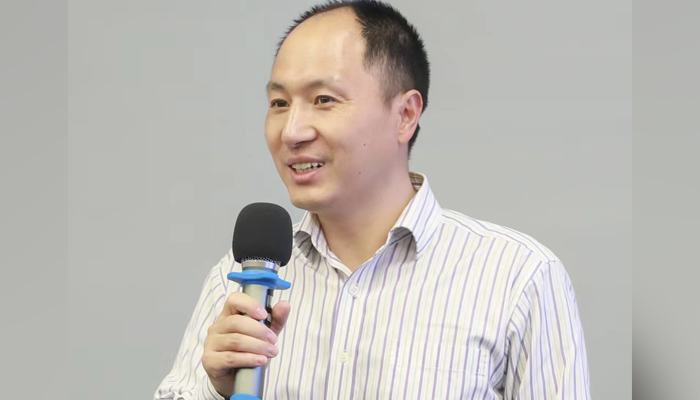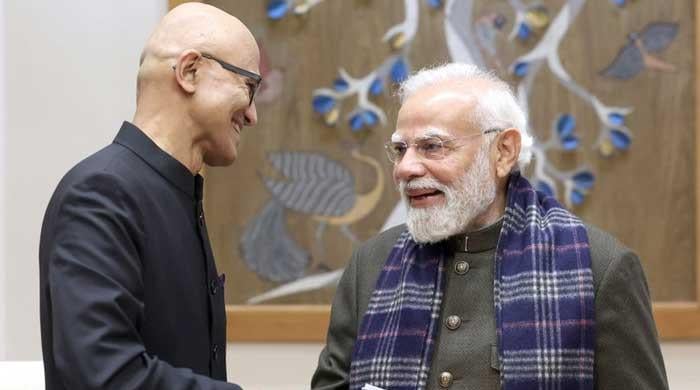Who wants to live forever? Chinese scientist claims can stop human ageing
His new proposal, reignited a controversy once again, which, according to experts, is echoing his earlier work
July 03, 2023

A controversial Chinese scientist He Jiankui claimed to have suggested a new idea to modify human embryos which could help people stop aging, after he revealed in 2018 that he created first-gene-edited children.
Jiankui has served three years in prison in China for his illicit medical practices. After reemerging last year, he stunned the global community of healthcare professionals by announcing on social media that he was opening a research lab in Beijing.
Since then, his research has focused to treat rare diseases by gene therapy.
However, his new research proposal, reignited a controversy once again, which, according to experts, is echoing his earlier work.
His research was criticised and regarded as unethical and dangerous – with the potential to impact human DNA across generations.
In a very short document, his proposal suggested that his research would involve gene-editing mouse embryos and then zygotes — human fertilised egg cells — in order to test whether a mutation "confers protection against Alzheimer’s disease."
The Chinese scientist wrote as people are getting older fast citing the demographic burden on the country: "The ageing population is of grave importance as both a socioeconomic issue and a strain on the medical system … Currently, there is no effective drug for Alzheimer’s disease."
His current anticipated experiment involves fertilised egg cells not considered good for woman implantation.
The proposal noted: "No human embryo would be implanted for pregnancy and government permit and ethical approval were required before experimentation."
Experts believe that his proposal is scientifically unsound.
Citing his research, the Chinese government took steps to regulate gene editing and the ethical aspects associated with it.
Chinese media reports indicated that he was banned from reproductive technology services work with limits on his work with human genetic resources.
"The whole thing is, to put it bluntly, insane," said Peter Dröge, an associate professor at the Nanyang Technological University in Singapore.
"Apart from ethical considerations, gene-editing an embryo to address a complex disease that affects people toward the end of their life and doesn't have a clear, single genetic cause is highly questionable," he said.
"He basically wants to genetically modify the human species so they don't get Alzheimer's," he said.
"I'm really surprised that he's coming forward with this again."
Joy Zhang, founding director of the Centre for Global Science and Epistemic Justice at the University of Kent in Britain, said the proposal seemed to be "more of a publicity stunt than a substantiated research agenda."
"However, we do need to take these public claims with vigilance, as it may nevertheless misguide patients and their families, and tint the reputations not just of science in China, but global research effort in this area," she said.
He said he was "collecting feedback from scientists and bioethicists now and did not have a timeline for the study."
"I will make a revision to the Alzheimer’s disease proposal later. I will not conduct any experiments until I get the government permit, and also get the approval by an international ethics committee with bioethicists from USA and Europe," he told CNN.
"I want to emphasise that this is a preclinical study, no embryo will be used for pregnancy in this study. The research will be open and transparent, and all experiment results and progress will be posted on Twitter," he said.









